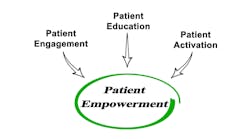It’s been a long time since I expected anything other than glossed over, sound bite journalism from the mainstream media, so Good Morning America’s sophomoric May 28 “report” titled “Does Telemedicine Work?” really shouldn’t distress me, but it does.
It’s been a long time since I expected anything other than glossed over, sound bite journalism from the mainstream media, so Good Morning America’s sophomoric May 28 “report” titled “Does Telemedicine Work?” really shouldn’t distress me, but it does.
I have nothing against ABC News for running such a specious segment. That most Americans will accept it as fact is my concern. Few viewers will know that telemedicine is used successfully worldwide to deliver diagnoses and procedural instructions to patients in remote and rural areas; to victims of floods and other disasters; to enhance and expand ED capabilities; and, to improve and extend care in the home. Dozens of recent examples would have been available to the authors of the facile little broadcast, had they done a simple Internet search.
The Centers for Medicare & Medicaid Services (CMS) think highly enough of telemedicine to reimburse physicians for treatments involving telemedicine technology. CMS also encourages the States to “use the flexibility inherent in federal law to create innovative payment methodologies for services that incorporate telemedicine technology.” It would appear that the U.S. Government thinks telemedicine “works.”
I culled the following quotes (some of which were made by M.D.s) from comments posted on ABC’s Web site following the broadcast:
“I feel the kind of skewed reporting I saw on ABC is irresponsible and ultimately causes panic in the public where there should be none.”
“I felt the doctor doing this report did not give these services a fair evaluation.”
“The National center for Policy Analysis (NCPA) has recently released a report [titled] ‘Convenient Care and Telemedicine’ (NCPA Policy Report No. 305) that outlines the problems with healthcare delivery and the solutions telemedicine is providing.”
“…it’s a very poor story indeed. Dr. Savard (GMA’s medical contributor) seems to have a pre-judgment against online medicine, which surely has its place.”
“The heart of this issue is convenience, information and gaining confidence to make good decisions. Diagnosing cancer online is ridiculous … the conclusion of the story seems to have been written before it even began.”
HMT’s readers “get” that telemedicine works. However, let’s remind ourselves that healthcare consumers rely on us to know the truth about such matters, and for critical guidance in their decision making.
It’s a responsibility I wish TV news producers understood.



